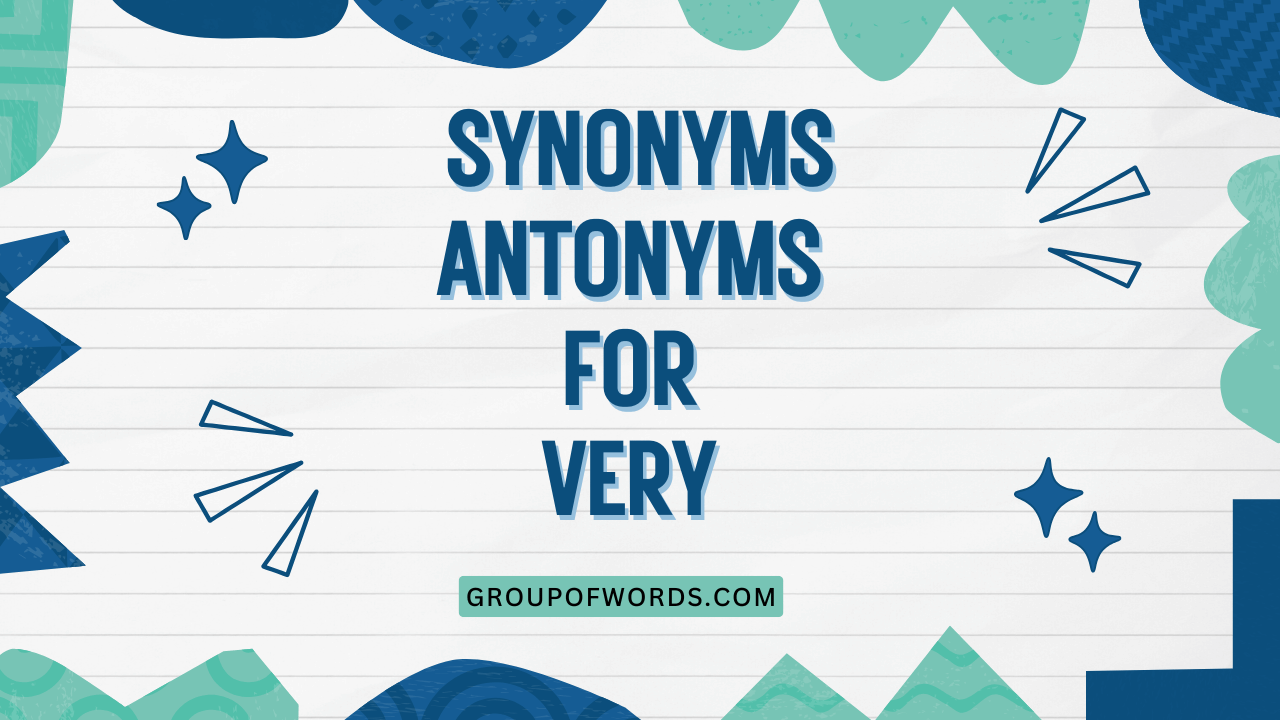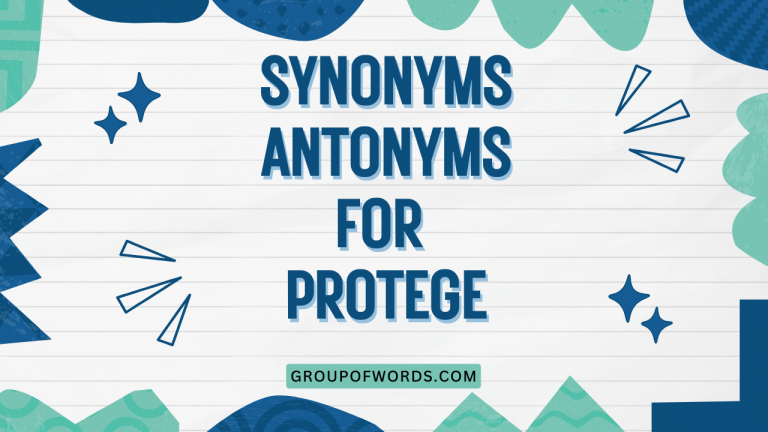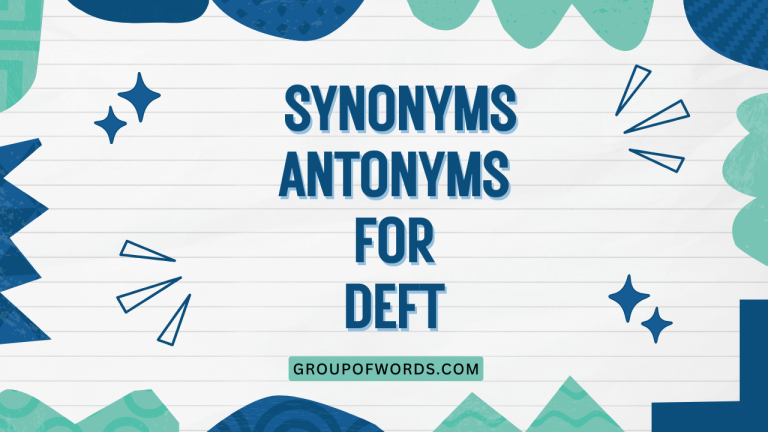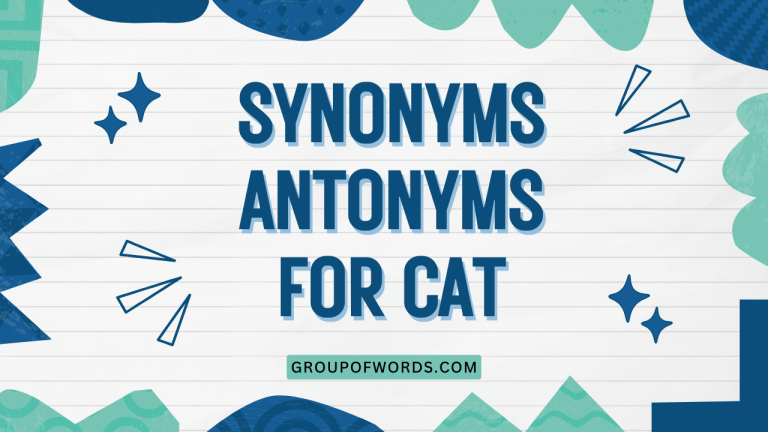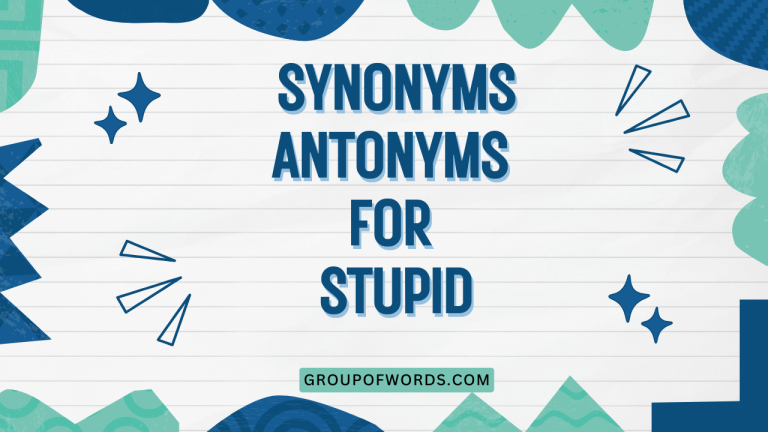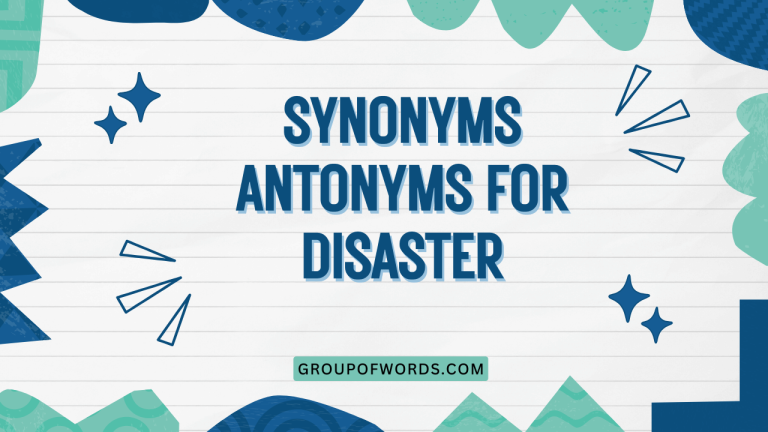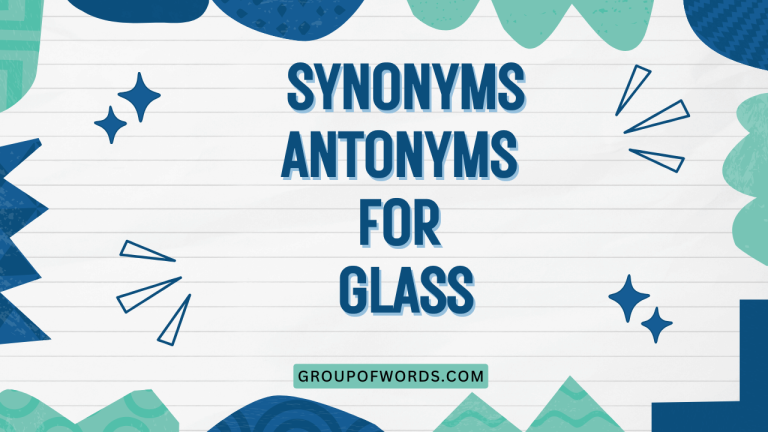Beyond “Very”: Synonyms and Antonyms for Enhanced English
The word “very” is a common intensifier in the English language, but overuse can make writing and speech sound simplistic. Mastering synonyms and antonyms for “very” adds nuance, precision, and sophistication to communication.
This article explores a rich array of alternatives to “very,” offering definitions, examples, and practical exercises to help you elevate your English proficiency. Whether you’re an ESL learner, a student honing writing skills, or a professional aiming for polished communication, this guide provides valuable tools to expand your vocabulary and express yourself more effectively.
By understanding the subtle differences between these alternatives, you can choose the most appropriate word for each situation, adding depth and color to your language. This article will equip you with the knowledge and practice needed to confidently replace “very” with more impactful and descriptive words.
Table of Contents
- Introduction
- Definition of Intensifiers and Their Importance
- Structural Breakdown: How Intensifiers Function
- Types and Categories of Synonyms for “Very”
- Examples of Synonyms and Antonyms for “Very”
- Usage Rules and Considerations
- Common Mistakes to Avoid
- Practice Exercises
- Advanced Topics: Nuances and Connotations
- Frequently Asked Questions
- Conclusion
Definition of Intensifiers and Their Importance
An intensifier is a word that increases the strength or degree of another word, typically an adjective or adverb. “Very” is the most common intensifier, but its simplicity can weaken the impact of your writing or speech. Using a wider range of intensifiers allows for more precise and vivid expression. They are vital for conveying the exact level of emphasis you intend, making your communication more effective and engaging.
Intensifiers add color and depth to language. They help listeners or readers understand the magnitude of a quality or action.
Choosing the right intensifier can significantly alter the meaning and impact of a sentence. For instance, saying “The movie was very good” is less impactful than saying “The movie was superb” or “The movie was exceptionally good.” The latter options convey a stronger sense of approval and enthusiasm.
Furthermore, mastering intensifiers can improve your writing style. Over-reliance on “very” can make your writing sound repetitive and uninspired.
By replacing “very” with more specific and descriptive words, you can create a more sophisticated and engaging text. This skill is particularly important for academic writing, professional communication, and creative writing.
Structural Breakdown: How Intensifiers Function
Intensifiers usually precede the adjective or adverb they modify. The basic structure is: Intensifier + Adjective/Adverb. For example, “very happy,” “extremely quickly,” and “incredibly beautiful” all follow this pattern. However, the choice of intensifier depends on the specific word being modified. Some intensifiers work better with certain adjectives or adverbs than others. For instance, you would say “utterly ridiculous” but not “utterly good.”
Certain intensifiers, often called absolute intensifiers, indicate the highest possible degree. These words leave little room for further intensification. Examples include “absolutely,” “completely,” “totally,” and “entirely.” These are often used to emphasize a state or condition without any qualification.
It’s also important to consider the collocation, or the way words naturally combine in English. Some intensifier-adjective/adverb combinations are more common and idiomatic than others. Learning these common collocations will help you use intensifiers correctly and naturally. For example, “deeply grateful” sounds more natural than “very grateful,” although both are grammatically correct. The former is simply a preferred and more common collocation.
Types and Categories of Synonyms for “Very”
Synonyms for “very” can be categorized into several types, including adjectives, adverbs, verbs, and phrases. Each category offers different ways to intensify the meaning of a word or statement.
Adjectives
Using strong adjectives is a great way to avoid “very.” Instead of saying “very good,” you could use “excellent,” “superb,” or “outstanding.” These adjectives inherently carry a higher degree of intensity.
For example, instead of “The food was very tasty,” one could say “The food was delicious.” The adjective “delicious” already implies a high degree of tastiness, making the intensifier “very” unnecessary.
Adverbs
Adverbs can be used to modify verbs, adjectives, or other adverbs, providing a more precise way to intensify meaning. Examples include “extremely,” “incredibly,” “exceptionally,” and “remarkably.”
For example, instead of “She was very tired,” one could say “She was incredibly tired.” The adverb “incredibly” intensifies the adjective “tired,” conveying a stronger sense of fatigue.
Verbs
Certain verbs can also function as intensifiers by conveying a strong action or state. Examples include “adore,” “cherish,” “despise,” and “loathe.” These verbs inherently carry a high degree of emotion or intensity.
For example, instead of “I very like this painting,” one could say “I adore this painting.” The verb “adore” expresses a much stronger level of liking than “very like.”
Phrases
Phrases can provide a more descriptive and nuanced way to intensify meaning. Examples include “beyond words,” “incredibly well,” “to a great extent,” and “truly remarkable.”
For example, instead of “He was very successful,” one could say “He was successful beyond words.” The phrase “successful beyond words” conveys a much greater degree of success than “very successful.”
Examples of Synonyms and Antonyms for “Very”
The following tables provide examples of synonyms and antonyms for “very” across different categories. These examples will help you understand how to use these alternatives in various contexts.
Examples with Adjectives
This table demonstrates using stronger adjectives to replace “very” + adjective combinations. Note how the alternative adjectives convey a more precise and impactful meaning.
| Original (Very + Adjective) | Synonym (Strong Adjective) | Antonym |
|---|---|---|
| Very good | Excellent, Superb, Outstanding | Awful, Terrible, Poor |
| Very bad | Terrible, Awful, Dreadful | Wonderful, Excellent, Great |
| Very beautiful | Gorgeous, Stunning, Exquisite | Ugly, Hideous, Unattractive |
| Very ugly | Hideous, Repulsive, Grotesque | Beautiful, Attractive, Lovely |
| Very big | Enormous, Immense, Gigantic | Tiny, Small, Miniature |
| Very small | Tiny, Minute, Petite | Huge, Large, Enormous |
| Very happy | Elated, Ecstatic, Overjoyed | Sad, Depressed, Miserable |
| Very sad | Depressed, Miserable, Heartbroken | Happy, Joyful, Cheerful |
| Very angry | Furious, Irate, Livid | Calm, Peaceful, Serene |
| Very calm | Serene, Tranquil, Peaceful | Angry, Agitated, Furious |
| Very important | Crucial, Essential, Vital | Insignificant, Trivial, Unimportant |
| Very unimportant | Insignificant, Trivial, Negligible | Important, Crucial, Essential |
| Very intelligent | Brilliant, Genius, Astute | Stupid, Foolish, Unintelligent |
| Very stupid | Foolish, Idiotic, Dense | Intelligent, Clever, Smart |
| Very clean | Spotless, Immaculate, Pristine | Dirty, Filthy, Grimy |
| Very dirty | Filthy, Grimy, Squalid | Clean, Spotless, Pristine |
| Very expensive | Exorbitant, Costly, Pricey | Cheap, Inexpensive, Affordable |
| Very cheap | Inexpensive, Affordable, Economical | Expensive, Costly, Exorbitant |
| Very fast | Rapid, Swift, Quick | Slow, Leisurely, Plodding |
| Very slow | Leisurely, Plodding, Sluggish | Fast, Rapid, Swift |
| Very difficult | Arduous, Challenging, Onerous | Easy, Simple, Effortless |
| Very easy | Simple, Effortless, Facile | Difficult, Arduous, Challenging |
| Very loud | Deafening, Boisterous, Thunderous | Quiet, Soft, Muted |
| Very quiet | Muted, Silent, Hush | Loud, Noisy, Boisterous |
Examples with Adverbs
This table provides examples of adverbs that can replace “very” to intensify adjectives or other adverbs. Using these adverbs can add precision and emphasis to your descriptions.
| Original (Very + Adjective/Adverb) | Synonym (Adverb + Adjective/Adverb) | Example Sentence |
|---|---|---|
| Very happy | Extremely happy | She was extremely happy to receive the award. |
| Very sad | Deeply saddened | He was deeply saddened by the news. |
| Very important | Critically important | The meeting is critically important for the project’s success. |
| Very beautiful | Exceptionally beautiful | The painting was exceptionally beautiful. |
| Very interesting | Intensely interesting | The lecture was intensely interesting. |
| Very difficult | Incredibly difficult | The exam was incredibly difficult. |
| Very tired | Exhausted | After the marathon, she was utterly exhausted. |
| Very surprised | Astonished | He was absolutely astonished by the surprise party. |
| Very worried | Anxious | She was genuinely anxious about the upcoming presentation. |
| Very angry | Furious | He was absolutely furious when he found out. |
| Very cold | Freezing | It was bitterly cold outside. |
| Very hot | Scorching | The desert was incredibly hot. |
| Very funny | Hilarious | The comedian was absolutely hilarious. |
| Very serious | Grave | The situation was extremely serious. |
| Very painful | Excruciating | The injury was incredibly painful. |
| Very obvious | Blatantly obvious | It was blatantly obvious that he was lying. |
| Very clear | Crystal clear | The instructions were crystal clear. |
| Very strange | Bizarre | The dream was utterly bizarre. |
| Very quiet | Completely silent | The library was completely silent. |
| Very crowded | Packed | The concert was incredibly crowded. |
| Very talented | Exceptionally talented | She is an exceptionally talented musician. |
| Very lucky | Extremely fortunate | They were extremely fortunate to survive the accident. |
| Very generous | Incredibly generous | He was an incredibly generous donor. |
Examples with Verbs
This table illustrates how to replace “very” with stronger verbs that inherently convey a high degree of intensity or emotion. This can make your writing more concise and impactful.
| Original (Very + Verb) | Synonym (Strong Verb) | Example Sentence |
|---|---|---|
| Very like | Adore | I adore spending time with my family. |
| Very dislike | Despise | I despise dishonesty. |
| Very want | Crave | I crave a vacation. |
| Very need | Require | This project requires immediate attention. |
| Very fear | Dread | I dread going to the dentist. |
| Very love | Cherish | I cherish the memories we made together. |
| Very hate | Loathe | I loathe being late. |
| Very admire | Revere | The community revered him for his contributions. |
| Very respect | Esteem | The professor was esteemed by his students. |
| Very enjoy | Relish | I relish the opportunity to travel. |
| Very surprise | Astound | The magician’s trick astounded the audience. |
| Very shock | Appall | The news appalled everyone. |
| Very please | Delight | The gift delighted her. |
| Very anger | Enrage | His behavior enraged his colleagues. |
| Very worry | Torment | The uncertainty tormented him. |
| Very scare | Terrify | The horror movie terrified the children. |
| Very bother | Pester | The flies pestered us all afternoon. |
| Very trust | Venerate | They venerate their elders. |
| Very value | Treasure | I treasure our friendship. |
| Very desire | Yearn | She yearned for adventure. |
Examples with Phrases
This table presents phrases that can replace “very” to add nuance and detail to your descriptions. These phrases often provide a more descriptive and idiomatic way to express intensity.
| Original (Very + Adjective/Adverb) | Synonym (Phrase) | Example Sentence |
|---|---|---|
| Very successful | Successful beyond words | His business was successful beyond words. |
| Very important | Of utmost importance | This matter is of utmost importance. |
| Very happy | On cloud nine | She was on cloud nine after the proposal. |
| Very sad | Down in the dumps | He was down in the dumps after losing the game. |
| Very surprised | Taken aback | I was taken aback by his sudden departure. |
| Very afraid | Scared stiff | I was scared stiff during the horror movie. |
| Very tired | Dead tired | I was dead tired after the long day. |
| Very angry | Seeing red | He was seeing red after the insult. |
| Very busy | Swamped with work | I’m swamped with work this week. |
| Very clear | As clear as day | The instructions were as clear as day. |
| Very easy | A piece of cake | The test was a piece of cake. |
| Very difficult | An uphill battle | The project was an uphill battle from the start. |
| Very crowded | Packed like sardines | The subway was packed like sardines. |
| Very quiet | Silent as the grave | The house was silent as the grave. |
| Very expensive | Cost an arm and a leg | The car cost an arm and a leg. |
| Very cheap | Dirt cheap | The clothes were dirt cheap at the sale. |
| Very fast | At lightning speed | The cheetah ran at lightning speed. |
| Very slow | At a snail’s pace | The traffic was moving at a snail’s pace. |
| Very happy | Over the moon | She was over the moon about the engagement. |
| Very sad | Heartbroken | He was heartbroken after the breakup. |
| Very successful | A resounding success | The event was a resounding success. |
| Very obvious | Plain as day | It was plain as day that he was lying. |
| Very loud | Loud enough to wake the dead | The music was loud enough to wake the dead. |
| Very good | The best thing since sliced bread | This new invention is the best thing since sliced bread. |
Usage Rules and Considerations
While there are many synonyms for “very,” it’s crucial to use them appropriately. Consider the context, the specific word you’re modifying, and the overall tone you want to convey.
Some intensifiers are more formal than others, and some are more suitable for specific situations.
Formal vs. Informal: Some intensifiers are more appropriate for formal writing or speech, while others are better suited for informal contexts. For example, “extremely” and “incredibly” are generally acceptable in most situations, while “super” or “really” might be more appropriate for casual conversation.
Collocations: Pay attention to collocations, or the way words naturally combine. Some intensifiers sound more natural with certain adjectives or adverbs. For instance, “deeply grateful” is a common and natural collocation, while “intensely grateful” sounds less idiomatic.
Over-Intensification: Avoid using too many intensifiers in a single sentence or paragraph. Over-intensification can weaken your writing and make it sound hyperbolic or insincere. Choose one or two strong intensifiers and use them judiciously.
Audience Awareness: Consider your audience when choosing intensifiers. If you’re writing for a technical audience, you might want to use more precise and formal intensifiers. If you’re writing for a general audience, you can use more common and accessible intensifiers.
Common Mistakes to Avoid
Using intensifiers incorrectly can lead to awkward or unnatural-sounding sentences. Here are some common mistakes to avoid:
Overusing “Very”: This is the most common mistake. Relying too heavily on “very” makes your writing sound simplistic and uninspired. Replace “very” with more specific and descriptive words whenever possible.
Incorrect Collocations: Using intensifiers that don’t naturally combine with the words they modify. For example, saying “utterly happy” instead of “extremely happy” or “completely happy.”
Redundancy: Using intensifiers with words that already imply a high degree of intensity. For example, saying “very unique” is redundant because “unique” means “one of a kind” and cannot be modified.
Inappropriate Tone: Using intensifiers that are too formal or informal for the context. For example, using slang intensifiers in a formal academic paper.
Here are some examples of incorrect and correct usage:
| Incorrect | Correct | Explanation |
|---|---|---|
| Very unique | Unique | “Unique” already means one of a kind, so it cannot be intensified. |
| Utterly good | Extremely good | “Utterly” doesn’t collocate well with “good.” |
| Very perfect | Perfect | “Perfect” means without flaw, so it cannot be intensified. |
| Incredibly average | Quite average | “Incredibly” implies a high degree, which contradicts “average.” |
Practice Exercises
Test your understanding of synonyms and antonyms for “very” with these practice exercises.
Exercise 1: Replace “Very” with a Stronger Adjective
Rewrite the following sentences, replacing “very” + adjective with a single, more descriptive adjective.
| Original Sentence | Your Answer |
|---|---|
| The movie was very good. | |
| The weather is very cold today. | |
| The food was very tasty. | |
| The problem is very important. | |
| The house is very big. | |
| The music was very loud. | |
| The joke was very funny. | |
| The task was very difficult. | |
| The room was very clean. | |
| The child was very happy. |
Exercise 2: Replace “Very” with an Adverb
Rewrite the following sentences, replacing “very” with a more precise adverb.
| Original Sentence | Your Answer |
|---|---|
| She was very tired after the race. | |
| He was very surprised by the news. | |
| The task was very difficult to complete. | |
| She was very grateful for the help. | |
| He was very angry about the situation. | |
| The weather was very cold last night. | |
| The movie was very interesting. | |
| The car was very fast. | |
| The instructions were very clear. | |
| They were very lucky to survive the accident. |
Exercise 3: Replace “Very” with a Stronger Verb
Rewrite the following sentences, replacing “very” + verb with a single, more expressive verb.
| Original Sentence | Your Answer |
|---|---|
| I very like this book. | |
| I very want a new car. | |
| I very fear spiders. | |
| I very love spending time with my family. | |
| I very hate being late. | |
| I very admire her courage. | |
| I very enjoy listening to music. | |
| The news very shocked everyone. | |
| The gift very pleased her. | |
| His behavior very angered his boss. |
Exercise 4: Replace “Very” with a Phrase
Rewrite the following sentences, replacing “very” + adjective/adverb with a more descriptive phrase.
| Original Sentence | Your Answer |
|---|---|
| He was very successful in his career. | |
| The matter is very important to me. | |
| She was very happy about the news. | |
| He was very sad after the loss. | |
| I was very surprised by the unexpected gift. | |
| I am very afraid of heights. | |
| I am very tired after the long journey. | |
| He was very angry about the unfair treatment. | |
| I am very busy with work this week. | |
| The instructions were very clear. |
Answer Key:
Exercise 1:
- The movie was excellent/superb/outstanding.
- The weather is freezing/frigid today.
- The food was delicious/exquisite.
- The problem is crucial/essential/vital.
- The house is enormous/immense/gigantic.
- The music was deafening/boisterous/thunderous.
- The joke was hilarious/uproarious.
- The task was arduous/challenging/onerous.
- The room was spotless/immaculate/pristine.
- The child was elated/ecstatic/overjoyed.
Exercise 2:
- She was utterly/completely exhausted after the race.
- He was absolutely/completely astonished by the news.
- The task was incredibly/exceptionally difficult to complete.
- She was deeply/sincerely grateful for the help.
- He was absolutely/completely furious about the situation.
- The weather was bitterly/extremely cold last night.
- The movie was intensely/exceptionally interesting.
- The car was incredibly/exceptionally fast.
- The instructions were crystal/perfectly clear.
- They were extremely/incredibly lucky to survive the accident.
Exercise 3:
- I adore this book.
- I crave a new car.
- I dread spiders.
- I cherish spending time with my family.
- I loathe being late.
- I revere her courage.
- I relish listening to music.
- The news appalled everyone.
- The gift delighted her.
- His behavior enraged his boss.
Exercise 4:
- He was successful beyond words in his career.
- The matter is of utmost importance to me.
- She was on cloud nine about the news.
- He was heartbroken after the loss.
- I was taken aback by the unexpected gift.
- I am scared stiff of heights.
- I am dead tired after the long journey.
- He was seeing red about the unfair treatment.
- I am swamped with work this week.
- The instructions were as clear as day.
Advanced Topics: Nuances and Connotations
Beyond simply replacing “very,” advanced learners should focus on the nuances and connotations of different intensifiers. Some intensifiers carry subtle shades of meaning that can affect the overall tone and impact of your writing or speech.
For example, “incredibly” implies a sense of disbelief or amazement, while “extremely” is more neutral. “Utterly” suggests a complete or absolute state.
Consider the emotional weight of different intensifiers. Some intensifiers, like “deeply” or “sincerely,” convey a sense of genuine emotion.
Others, like “absolutely” or “completely,” are more emphatic and assertive.
Also, be aware of regional variations in intensifier usage. Some intensifiers are more common in certain dialects of English than others.
Understanding these regional differences can help you communicate more effectively with diverse audiences.
Frequently Asked Questions
Here are some frequently asked questions about synonyms and antonyms for “very”:
- Q: Why is it important to avoid overusing “very”?
- A: Overusing “very” can make your writing sound simplistic, repetitive, and uninspired. It weakens the impact of your statements and makes your communication less effective. Using a variety of synonyms adds nuance and sophistication to your language.
- Q: Are there any situations where it’s okay to use “very”?
- A: Yes, in casual conversation, “very” is perfectly acceptable and often the most natural choice. However, in formal writing or speech, it’s generally better to use more specific and descriptive alternatives.
- Q: How can I improve my vocabulary of intensifiers?
- A: Read widely and pay attention to the intensifiers that authors use. Make a list of new intensifiers and practice using them in your own writing and speech. Use a thesaurus to find synonyms for “very” and explore their different meanings and connotations.
- Q: What’s the difference between an intensifier and an adjective/adverb?
- A: An adjective or adverb describes a quality or action, while an intensifier modifies an adjective or adverb to increase its strength or degree. For example, “beautiful” is an adjective, but “extremely beautiful” uses “extremely” as an intensifier.
- Q: How do I choose the right intensifier for a specific word?
- A: Consider the context, the specific word you’
re modifying, and the overall tone you want to convey. Some intensifiers collocate better with certain words than others. Use a dictionary or thesaurus to explore different options and their nuances.
- Q: Can I use multiple intensifiers in a sentence?
- A: While it’s grammatically possible, using multiple intensifiers can make your writing sound hyperbolic or insincere. It’s generally better to choose one or two strong intensifiers and use them judiciously.
- Q: Are there any intensifiers that should be avoided altogether?
- A: Some intensifiers, like slang terms or overly informal words, may be inappropriate for formal writing or professional communication. Avoid using intensifiers that are offensive, discriminatory, or otherwise unsuitable for your audience.
- Q: How can I practice using synonyms for “very” in my writing?
- A: Start by identifying instances of “very” in your own writing. Then, use a thesaurus to find alternative intensifiers that convey a more precise or impactful meaning. Experiment with different options and see how they affect the overall tone and flow of your text.
- Q: What are some resources for learning more about intensifiers and their usage?
- A: Dictionaries, thesauruses, style guides, and grammar books are all valuable resources for learning more about intensifiers. Online writing communities and forums can also provide helpful tips and feedback.
Conclusion
Mastering synonyms and antonyms for “very” is an essential step in enhancing your English language skills. By expanding your vocabulary of intensifiers, you can add nuance, precision, and sophistication to your writing and speech.
Avoiding overuse of “very” will make your communication more effective and engaging, whether you’re writing an academic paper, giving a presentation, or simply having a conversation.
Remember to consider the context, tone, and audience when choosing intensifiers. Pay attention to collocations and avoid redundancy.
With practice and attention to detail, you can confidently replace “very” with more impactful and descriptive words, elevating your English proficiency to new heights.
